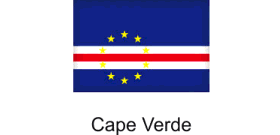 Cabo Verde Champions Rural and Nature Tourism for Inclusive, Sustainable Growth
Cabo Verde Champions Rural and Nature Tourism for Inclusive, Sustainable Growth
The winds of change are sweeping across Cabo Verde’s tourism sector as the nation concluded the 3rd International Conference on Rural and Nature Tourism in Jao Domingoes, placing sustainability and diversification at the heart of its tourism strategy. With a pressing need to move beyond its established sun-and-beach image, Cabo Verde is now positioning itself as a model for rural and nature-based tourism—an approach that resonates with African travel industry professionals seeking new pathways for resilient, community-driven development.
Addressing the conference, Vice Prime Minister Dr. Olavo Avelino Garcia Correia underscored the crucial role of tourism in the country’s economy and called for a collective commitment to preserving Cabo Verde’s unique natural and cultural heritage. “Tourism connects Cabo Verde to the world. Our duty is to protect and preserve what makes our islands unique,” Dr. Correia stated, highlighting the nation’s ambition to create a tourism sector that is sustainable, values-based, and beneficial for both visitors and local communities.
The event, held as part of World Tourism Day celebrations and organized by the Ministry of Transport and Tourism, brought together a diverse community of policymakers, industry experts, academics, and international partners. Over three days, delegates exchanged knowledge and explored strategies to unlock the full potential of sustainable rural and nature tourism, sparking ideas and partnerships relevant for the entire sub-Saharan region.
Dr. Correia outlined four central challenges facing Cabo Verde as it seeks to realise its tourism vision:
- Mobilizing financial resources to translate ambition into concrete results.
- Building strong collaboration among public and private sectors, civil society, and global partners.
- Streamlining bureaucracy to accelerate project implementation.
- Ensuring that tourism-driven opportunities promote dignity and well-being across all islands and communities.
Central to Cabo Verde’s approach is a commitment to environmental stewardship. Dr. Correia emphasized the need to protect land, marine ecosystems, and biodiversity, affirming that “only with a healthy and well-managed territory can we achieve balanced and sustainable development.”
Expanding Horizons with Infrastructure and Connectivity
Reinforcing the government’s vision, Minister of Tourism and Transport, Dr. José Luís Sá Nogueira, highlighted efforts to decentralize tourism by promoting lesser-known islands through rural and nature-based experiences. He stressed the pivotal role of investments in air and sea transport infrastructure, citing the recent launch of Linhas Aéreas de Cabo Verde—the country’s new domestic airline—and the introduction of two ATR aircraft as game changers for inter-island connectivity. These advancements are expected to spur economic growth and ensure more equitable distribution of tourism’s benefits across the archipelago.
The minister also pointed to the alignment of national tourism initiatives with the Sustainable Development Goals and the adoption of a circular economy model. By leveraging each island’s distinctive identity and fostering holistic, inclusive tourism, Cabo Verde aims to set a benchmark for sustainable tourism development throughout Africa.
International Partnerships Fuel Ambition
International backing was a prominent theme, with representatives from the European Union and World Bank reaffirming their commitment to Cabo Verde’s tourism transformation. Dr. Sylvie Millot of the EU praised the government’s vision, noting ongoing support for infrastructure and sustainable tourism projects focused on sports, ecology, and community empowerment. World Bank Senior Specialist Antonio Manuel Baptista highlighted active investment in restoring historical sites and mobilizing new funding to bolster the sector’s competitiveness and sustainability.
“Our objective is to unlock more opportunities and position Cabo Verde as a competitive and sustainable tourism destination,” Baptista remarked, echoing sentiments shared by many African nations seeking to harness international partnerships for sectoral growth.
Conference as a Platform for Sector-wide Learning
This year’s conference featured an engaging programme of case studies and expert discussions on topics such as:
- Sustainable tourism in protected areas
- Adventure tourism and the development of hiking trails
- Circular economy practices in tourism
- Tourism development on Santiago Island
- Heritage preservation and the expansion of rural tourism
These discussions provided valuable insights for policy-makers and operators across sub-Saharan Africa, showcasing how Cabo Verde’s experiences can serve as a blueprint for communities seeking to diversify their tourism portfolios while preserving their natural assets and cultural integrity.
The event’s rotation across the islands—from São Antão and São Nicolau to this year’s focus on Santiago—underscores a genuine effort to decentralize tourism and ensure benefits reach every corner of the nation. This inclusive approach can inspire similar initiatives across Africa, where regional balance and rural development are increasingly vital to tourism success.
As the conference drew to a close, Dr. Correia’s words captured the mood and ambition of the sector: “Cabo Verde is a country of opportunities. Challenges must not block our vision. Tourism can and must serve as a lever for the development of other sectors.”
For Africa’s travel sector, Cabo Verde’s journey offers timely lessons in strategic investment, community engagement, and environmental stewardship. It demonstrates that with targeted infrastructure, robust partnerships, and a firm commitment to sustainability, rural and nature tourism can become a powerful driver of inclusive growth and long-term resilience for destinations across the continent.
